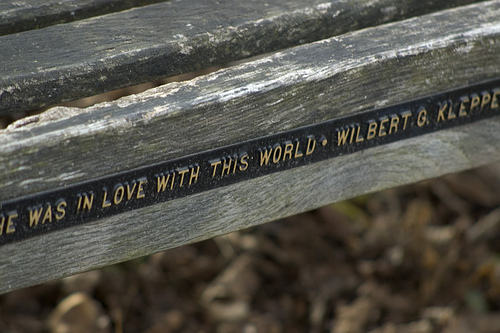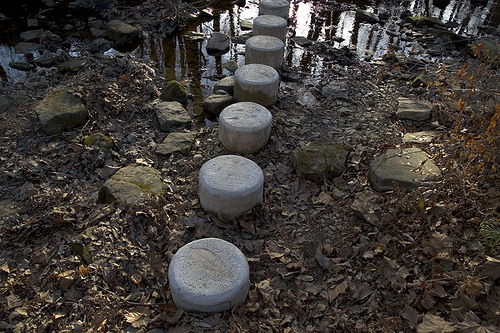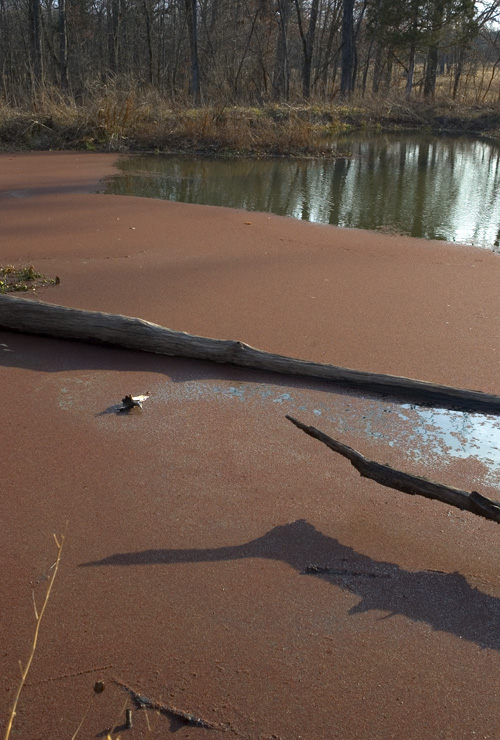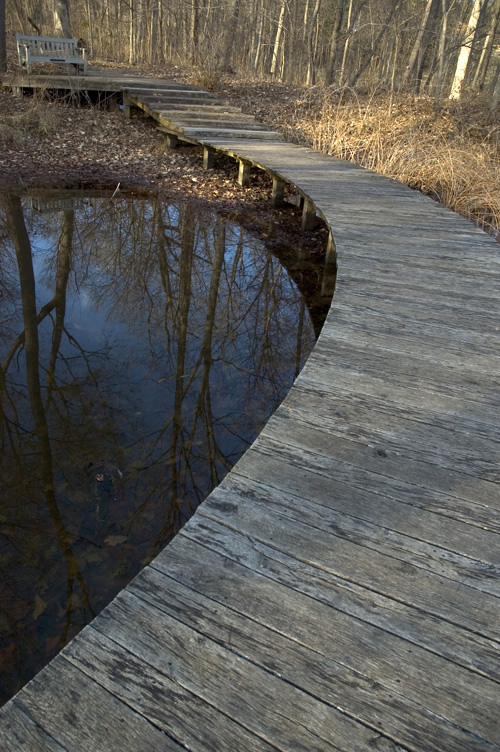Yesterday was an absolutely beautiful day, almost 70 degrees. There was a breeze, but it was warm and gentle and one could go about with a light jacket and feel just right.
I hadn’t been up to Shaw in a long time because of the road construction on I-44. The state is adding an extra lane all the way to Gray Summit, and in the process the lanes are narrow and the road surface uneven. The speed limit is supposed to be 50, but I’ve yet to see anyone follow this. Well, other than myself. A Ford Focus handles beautifully on country roads, gravel, in the city and what not, but it does not do well on uneven roads.
At Shaw I debated on taking the forest path to the wet land, or the country road behind the back. I had my iPod in its new heavy duty Belkin leather case, and it was fun just walking along the road, listening to Bond; taking the ear buds out from time to time to listen to the wind through the trees and the birds singing.
I also took along my camera because, though Shaw is in the middle of its dormant stage, you never know when something will pop up that might be fun to photograph. Such was the case yesterday when I came across piles of cut Eastern redcedar.
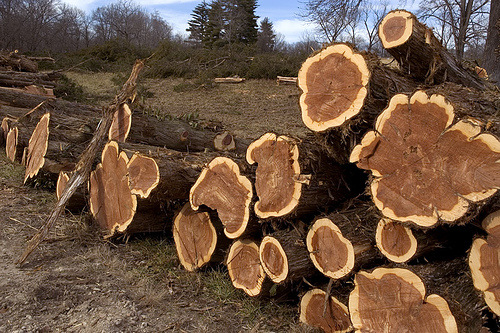
Eastern redcedar is really a juniper tree, but it still has a beautiful grain and smell. The photography gave me an excuse to get close to the wood and breath in the scent. I noticed that the trees must have been fresh cut, as they were still ‘bleeding’ from the cuts.
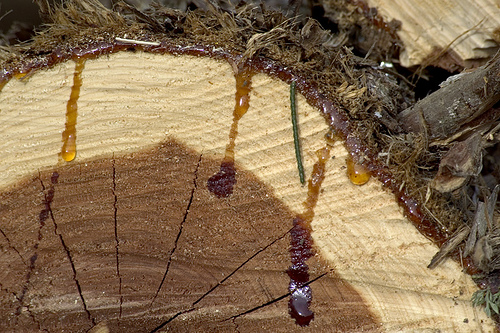
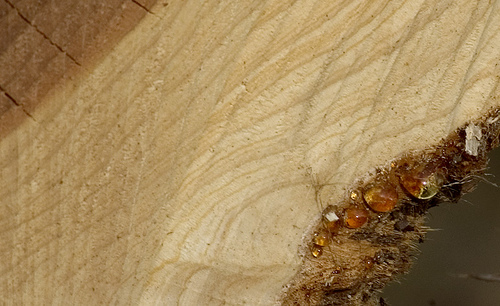
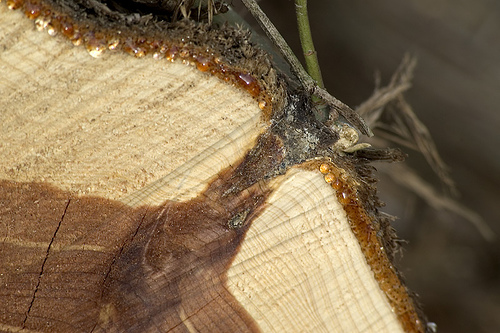
A couple of folks came along and seemed dismayed to see what looked like healthy young trees cut down. After all, this is a Nature Center, what could be more natural than trees? Especially when the Center replaces the stands of trees with what looked like fields of weed. However, this effort is part of the the ongoing effort to remove invasive species all across the park; restoring native wetland and prairie, as well as stands of hickory and oak, which are more natural for this area.
Environments are delicate, and the health of a particular environment is not necessarily obvious in the eye of the beholder. Though a vast empty prairie may look like ruin, and a forest of cedar look richly healthy, the opposite can be and often is in true–prairies are alive with many species of plants and animals that may be difficult to spot, while eastern redcedar forests may contain just that: big redcedar trees and nothing else.
At one time, Shaw was prairie and wetland, but people came along and plowed it under into farmland. When the farms were abandoned and the ground lay fallow, rather than be reclaimed by what was natural wildflowers and grasses, seeds contained in berries eaten by birds made their way to the fertile ground and honeysuckle and eastern redcedar thrived. Unfortunately, redcedar needles contain a high level of acidity, unpalatable to other plants. Both species choke out others by overrunning the ground as well as providing a canopy preventing young plants from getting enough sun.
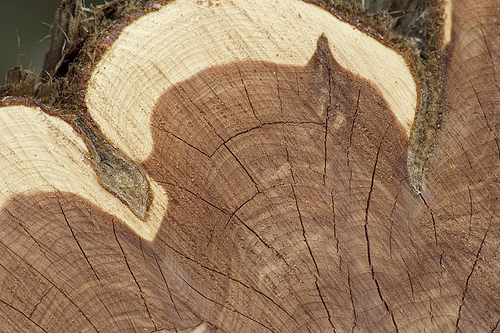
Like many other areas in the Midwest, work is underway to pull up these invasive plants, and replant native species in their place. Until this is finished, every winter the park is a mass of pulled and destroyed honeysuckle vine and redcedar trees in addition to the marks of controlled burns.
I left the road half way around to take the forest path past the prairie. The park had added a new bench overlooking the hills in a nice place to sit and enjoy the view of the grassland and the sod house on the hill.
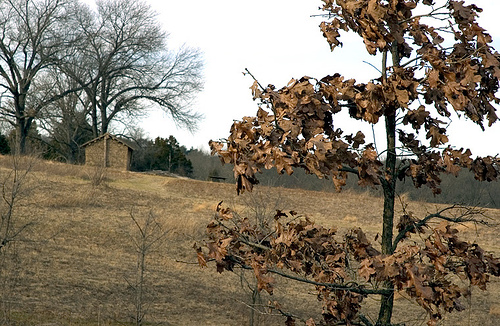
I liked the inscription on the bench: He was in love with this world.
